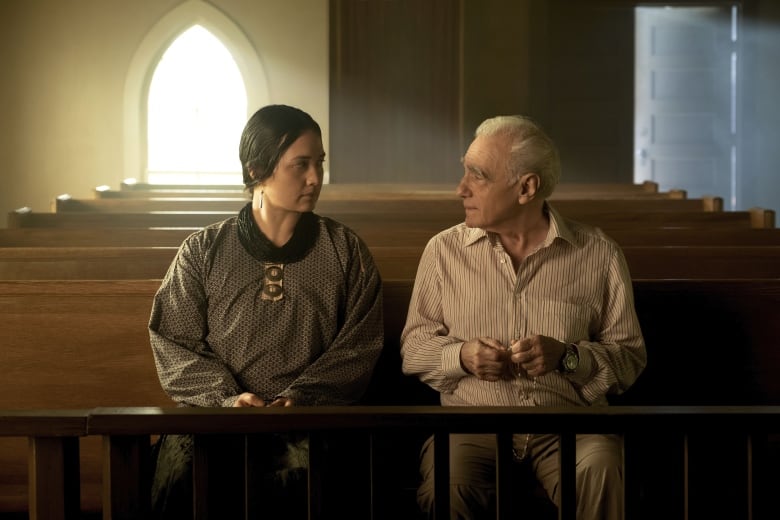Lily Gladstone says Martin Scorsese understood 'his place' in making Killers of the Flower Moon
The film’s breakout star defended the director from criticisms about the historical drama

Martin Scorsese's epic crime drama Killers of the Flower Moon has sparked conversations around how to tell Indigenous stories, and more importantly, who should tell those stories.
The film is based on David Grann's book of the same name about the 1920s Osage murders, in which the oil-rich Osage Nation in Oklahoma was targeted by hordes of white interlopers who murdered an estimated 150 tribe members in a plot to steal their land rights.
The breakout star of Killers of the Flower Moon is Lily Gladstone, who plays Mollie Burkhart, an Osage woman of considerable wealth and status who tries to save her community. The protagonist of the story is Mollie's husband, Ernest Burkhart, played by Leonardo DiCaprio.
At the film's Los Angeles premiere, Osage language consultant Christopher Cote told The Hollywood Reporter he "really wanted this to be from the perspective of Mollie and what her family experienced" but it would take an Osage filmmaker to bring that perspective to the screen.
Gladstone shared her thoughts on Cote's comment and some other criticisms of the film in an interview with Q guest host Talia Schlanger.
"I'm really encouraged that it's not just Chris feeling that way — a lot of people are feeling that they wanted more of Mollie's perspective," she said. "I think that's a beautiful and very just response. And I think a lot of people, when they hear what Chris said, or hear things that I have to say, feel like it's a dismissal of Marty — it's not. Marty as a filmmaker understands what his role and his place is, and understands the story he wants to tell."

Gladstone said she thinks the director has significantly increased public awareness of the history of the Osage murders in a meaningful way.
"I think it's really important that Marty has made a film that has made more people care about what that history is and want that perspective," she told Schlanger. "It challenges the audience and their own complicity with this by telling the story through Ernest's perspective, which is a really powerful thing for a filmmaker like Marty to be doing at this time.
"That desire to have more Mollie, to have more of the perspective, hopefully brings audiences to seek out more and more Native filmmakers because there's a lot out there."
WATCH | Official trailer for Killers of the Flower Moon:
At a Q&A following a screening of Gladstone's film Fancy Dance — a story about matriarchal love surviving colonialism — a young man stood up to express his opinion on how it contrasts Killers of the Flower Moon.
"He said he felt like Fancy Dance and Killers of the Flower Moon should be seen together," said Gladstone. "Everything that was in Fancy Dance filled in that space for him."
"It's always paramount that people tell their own stories, but it's also really important that Native stories get the attention of these filmmakers like Scorsese…. It wouldn't have been Marty's place to tell an Osage story as an Osage filmmaker, but his place was to tell this story with Osage people. I mean, there's a reason everybody calls him 'Uncle Marty.' I hope that it's established a new precedent for people who are wanting to work with histories and communities like this."
The full interview with Lily Gladstone is available on our podcast, Q with Tom Power. Listen and subscribe wherever you get your podcasts.
Interview with Lily Gladstone produced by Mitch Pollock.
